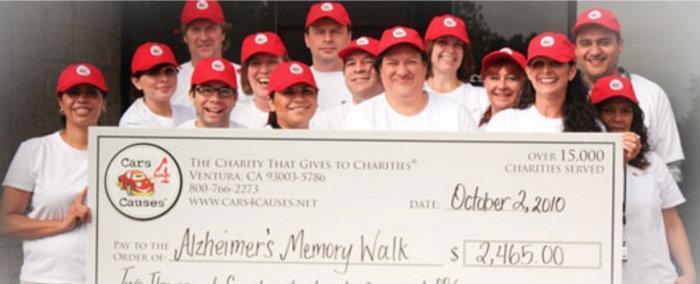Consumers donated their cars but not much money went to charity, state charges

California Attorney General Kamala Harris and local prosecutors sued People's Choice Charities and Cars 4 Causes, saying they misrepresent their programs and improperly profit from what are supposed to be charitable activities.
“These charities exploited the goodwill of generous donors by misrepresenting their charitable programs, misappropriating donations and accruing excessive administrative costs,” Harris said. “These lawsuits hold People’s Choice Charities and Cars 4 Causes accountable for breaking the law and give California consumers greater confidence that their donations go toward the intended charitable cause.”
Tax breaks broken?
An even bigger problem for many consumers is that the actual tax benefit from donating a car can turn out to be quite small. Until the tax laws changed a few years ago, you could deduct the fair-market value of your car. Now you can only deduct the net proceeds that the charity receives when your car is sold.
For example, if the charity ends up selling your donated car, with a fair market value of $2,000, for $800 then $800 is what you can deduct from your income at tax time.
But how much is that going to mean at tax refund time? Not very much. Let's assume you are in the 28% tax bracket – an $800 deduction will give you $224 back. If you are in the 10% bracket, it only yields $80.
People's Choice
Los Angeles-based People’s Choice Charities (PCC) claimed that 100% of the net proceeds from the sale of donated cars would go to the donors’ chosen charities. But Harris' lawsuit alleges that 97% of the donations were spent on administrative costs, such as towing, car repairs, and advertising.
PCC claimed that towing was free and that it employs experienced staff to repair and sell the cars at minimal cost. In reality, PCC charges the charities for towing expenses and has no repair staff; instead they pay outside vendors hundreds of thousands of dollars to do this work, Harris charged. After PCC deducts its numerous and undisclosed expenses, only a tiny fraction of the vehicle’s sale price is forwarded to the donor’s chosen nonprofit, the suit alleges.
According to audits conducted by the attorney general’s office, from 2007 to 2012, PCC reported that it had donated over $700,000 to other nonprofits, while actually only donating $174,000. To increase their inventory, PCC also developed a “cash back” program whereby vehicle donors could receive money in return for their “donation,” effectively transforming a charitable organization into an unlicensed used car dealership in violation of state law, Harris said.
Cars 4 Causes
Ventura-based Cars 4 Causes claimed it “worked smarter” to “get the most money for charity.” In reality, the state's lawsuit alleges, C4C used 87% of its donations to pay for items such as advertising and administrative costs, including staff salaries, while only 13% was directed to actual charities.
From 2009-2014, C4C reported that $15.9 million was donated to charity. In reality, C4C only gave $5.4 million to charity—and many of the charities designated by donors received nothing at all, the suit charged. During this time, C4C denied many requests from individuals in need seeking a car, including single mothers, college students, and seniors, all while paying thousands towards staff salaries and millions to advertisers.
C4C took money from the very charities it promised donors that it would support, Harris said. According to C4C’s own accountings, it misappropriated about $2 million from thousands of charities, including over $600,000 that should have been given to charities serving the sick and providing medical research, $250,000 to children’s and education charities, $100,000 to veterans’ organizations, $230,000 to religious organizations, and $200,000 to charities serving the poor, among others.











0 commentaires:
Enregistrer un commentaire